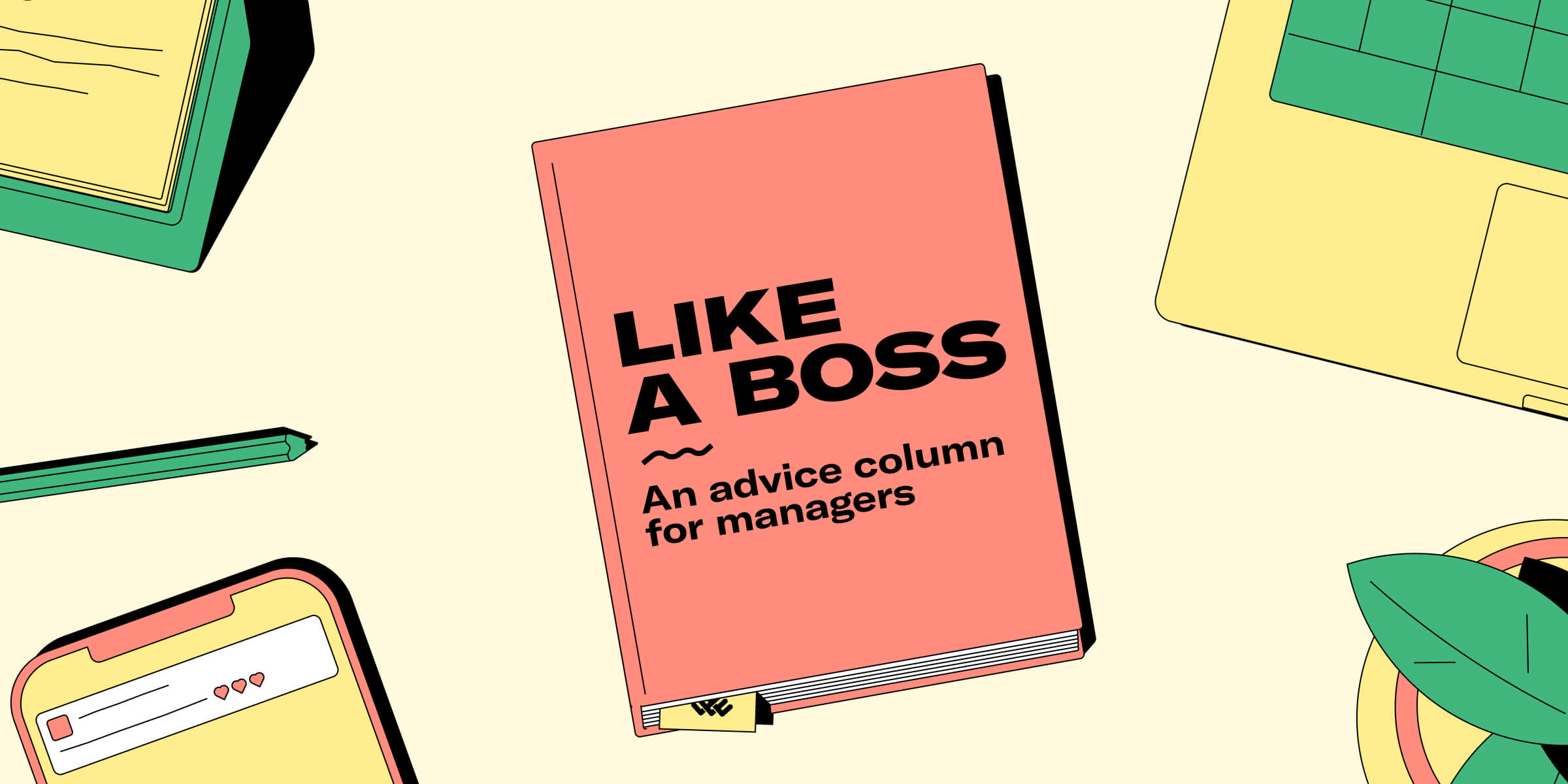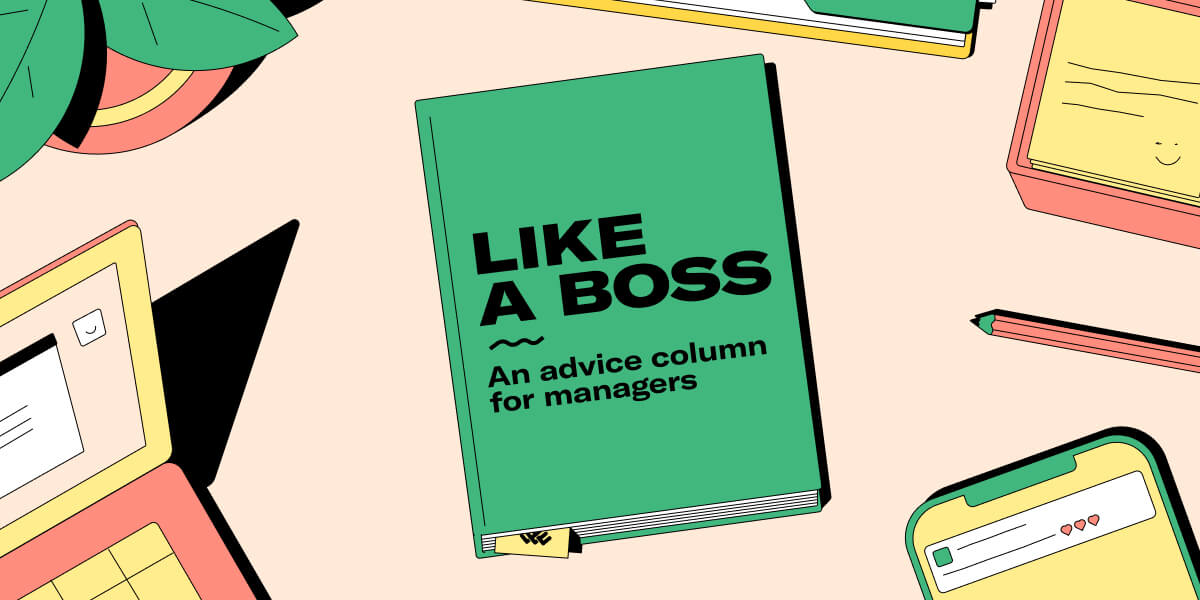Welcome to Lattice’s advice column for new managers, “Like a Boss.” I’m your host, Jennifer Romolini. I’m an editor, an author (of the career guide “Weird In a World That’s Not”), and, yes, a boss who’s been managing other humans for the past dozen or so years at companies both giant and tiny, at quick and dirty startups and multi-layered corporations, with remote and in-office teams ranging from five to 45. I’m also a speaker who talks about succeeding at work even when you feel like a freak. And, sometimes, I give advice, like right now.
Dear Boss,
I’m a younger person who runs a diverse team, and am managing someone who’s older and more experienced than I am. How do I handle it?
Intimidated in SF
Dear Intimidated
A few years ago, I was talking to a 50-something friend about a new job I’d just landed. On paper, it was an impressive-sounding, high-profile position; one that looked from the outside like a big, dreamy deal. In reality, it was a hellscape. Just a few weeks in and I was miserable. I wanted out ASAP, but my friend advised against this: “You need to spend the rest of your 40s building up your career as much as you can because no one hires you once you hit 50,” she explained. “Once you remind hiring managers of their moms they get freaked out and don’t want to work with you.”
I still don’t know if she’s right or not about the specifics (and, FWIW, I left that job anyway — I love a challenge!) but I do know that ageism is a real and horrifying problem in business and that we devalue, discount, and throw away olds (like me, I guess?) like we would yesterday’s breakroom garbage. Older people have value, younger people have value, people of different races, ages, sexualities, gender identities, and physical and neurological makeups should be considered valuable to your team and your organization. The more of a mix, the better! But I get it. You might feel intimidated and the power balance is all wrong, but don’t worry. By being self-aware, acutely present, and human, you can get through these initial trepidations.
Here’s how you’re going to handle this.
Be Curious and Check Your Pre-Judgements At the Door
There are probably many fancy leadership scholars who’d tell you otherwise, but to me (beyond just not acting like a monster), the most important quality of any successful manager is curiosity. You should be curious about your employees, you should keep your mind open about who they are and what they can do, you should try the best you can to let them surprise you. This means not putting this older person in the experienced/intimidating person box along with any/all negative connotations their age brings for you. Starting clean, with few preconceived notions, and taking the time to have honest, thoughtful conversations with your employee about their experience and goals will go a long way in helping you overcome some of this nervousness.
Be Flexible
The best managers understand the unique experience and abilities of each of their employees and then play to their strengths. That means being somewhat flexible with job descriptions, shifting duties around until you’ve found the best person not only for each role but each task. Maybe this older employee should not be managing the company’s Tik Tok account, but maybe they should be doing something that requires judgment and experience like front-facing with challenging clients.
Encourage Collaboration
Create as many opportunities as you can for members of your team to work together, share their experiences, and swap useful information. Create safe meeting environments where people feel comfortable problem solving and contributing new ideas and make sure you shut down obstructionists and any negativity for negativity’s sake.
A few ways to execute this:
- Set a monthly meeting where everyone on the team brings their challenges and you brainstorm solutions together as a group.
- Instead of solo projects, assign projects to complementary team members and have them set and meet deadlines together.
Give Regular Feedback
Create a culture of transparency where your employee know where they stand — old, young, or anywhere in between (Lattice’s feedback tool is great for this). Shut down rumors and clear up misunderstandings as soon as you can. Encourage openness and honesty, including receiving feedback from your employees on your own performance. By creating a transparent and respectful work environment where employee expectations are clearly set and open communication is encouraged, you’ll quickly find your focus is on the work and not your employees’ age at all.







